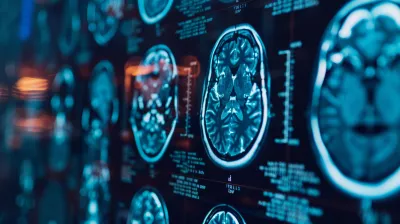Anti-seizure medication
Explore anti-seizure medications, their types, side effects, and tips for effective use. Find resources and support for managing epilepsy.
This section covers epilepsy treatments, including anti-seizure medications, vagus nerve stimulation, neurosurgery, the ketogenic diet, and more.
It also includes FAQs for parents and carers on antiseizure medications for children.

Last updated December 2023.
We’re currently reviewing this information. The next update will be 2026. If you would like to find out more about how we produce our information, or the sources of evidence we use, please contact us at healthinfo@youngepilepsy.org.uk
Explore anti-seizure medications, their types, side effects, and tips for effective use. Find resources and support for managing epilepsy.
Learn how anti-seizure medications affect contraception and pregnancy. Find guidance and support for managing epilepsy during these crucial times.
Learn about generalised tonic-clonic seizures, their causes, symptoms, and treatment options. Find support and resources for managing this condition.
Learn about focal onset seizures, their causes, symptoms, and management. Find support and resources for managing this type of epilepsy.
Explore information about anti-seizure medication options for treating absence seizures and co-occurring seizure types with Young Epilepsy’s guidance.
Explore anti-seizure medications for treating myoclonic seizures, including single and add-on options to help manage symptoms effectively.
Learn about single and add-on anti-seizure medications used to treat tonic or atonic seizures on Young Epilepsy’s resource page.
This page explains deep brain stimulation, a treatment for adults with uncontrollable seizures who can't be helped by medication or other surgeries.
Learn about vagus and trigeminal nerve stimulation for young people with epilepsy, a treatment for those with frequent, drug-resistant seizures.
Explore neurosurgery for epilepsy, its benefits, risks, and procedures. Find support and resources for managing epilepsy through surgical options.
Learn about ketogenic, modified Atkins, and low glycaemic index diets for epilepsy treatment, improving seizure control for some children.
Learn about cannabis-based anti-seizure medication, including its use in treating specific epilepsy syndromes and its potential benefits for patients.
Learn about complementary therapies for epilepsy, including homeopathy, aromatherapy, yoga, and more. Doctors do not recommend these treatments.
Learn about the causes of epilepsy, including genetic, metabolic, unknown origins, and epilepsy in infants, from Young Epilepsy.
Learn about common childhood and rare infancy epilepsy syndromes in this informative guide from Young Epilepsy.
Understand epileptic seizures, their types, causes, and management. Find resources and support for living with epilepsy.
Learn about epilepsy diagnosis, referral, assessments, and the tests used to help identify epilepsy at Young Epilepsy.
Explore common co-occurring conditions with epilepsy, including autism, ADHD, and DCD (dyspraxia), and how they impact children with epilepsy.
Learn about SUDEP, the risks to children and young people with epilepsy, and how to reduce them.